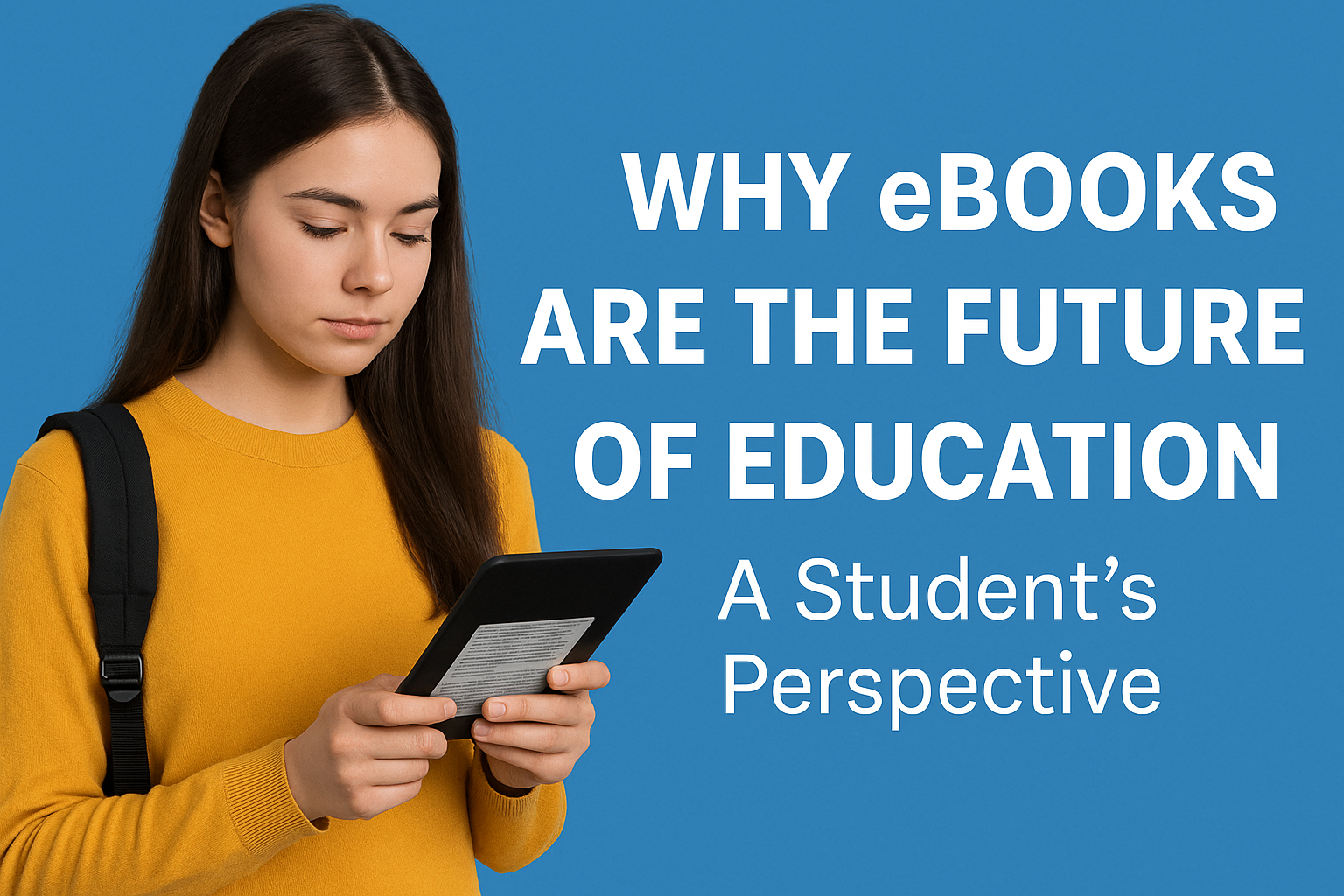In today’s digital age, the shift from traditional textbooks to eBooks is not just a trend—it’s a revolution in the world of education. For students, this change represents more than just convenience; it’s about transforming the learning experience to make it more accessible, interactive, and engaging.
As a student navigating the fast-paced world of academics, here’s why I believe eBooks are truly the future of education.
1. 📱 Anytime, Anywhere Access
Unlike printed books that require physical storage and transportation, eBooks offer 24/7 access across multiple devices—phones, tablets, laptops, or eReaders. Whether you’re commuting, in bed, or in the library, your study materials are always just a tap away.
“With eBooks, I no longer worry about forgetting my books at home—everything I need is right on my device.”
2. 💸 Cost-Effective Learning
Textbooks can be incredibly expensive, especially in higher education. eBooks, on the other hand, are much more affordable. Many are even free or available under subscription models, reducing the financial burden on students and families.
“I’ve saved thousands of rupees by switching to eBooks instead of buying physical copies every semester.”
3. 🔍 Searchable and Interactive
One of the biggest advantages of eBooks is the ability to search content instantly. No more flipping through hundreds of pages—just type in a keyword and jump to the relevant section. Many eBooks also include interactive quizzes, videos, and annotations, making learning more engaging.
“Interactive eBooks helped me understand complex science topics faster, thanks to built-in animations and videos.”
4. 🌱 Eco-Friendly and Sustainable
The production of printed books requires paper, ink, and energy—all contributing to environmental impact. eBooks are eco-friendly alternatives that align with sustainable education practices.
“Knowing that I’m reducing my carbon footprint while studying makes me feel like I’m contributing to something bigger.”
5. 🧠 Personalized Learning Experience
Many digital platforms offer customization features like adjustable fonts, background colors, text-to-speech, and note-taking tools. These enhancements make learning more inclusive and tailored to individual needs—especially beneficial for students with learning disabilities.
“I love changing the font and size to make reading easier on my eyes, especially during long study sessions.”
Final Thoughts: The Future Is Digital
As technology continues to evolve, so does the way we learn. eBooks are not just a replacement for textbooks—they’re a gateway to smarter, more efficient, and more inclusive education. From affordability and accessibility to personalization and eco-friendliness, eBooks are shaping the future of learning.
For students like me, embracing eBooks isn’t just a choice—it’s a necessity to thrive in today’s digital-first world.
✅ Key Takeaways:
- eBooks offer 24/7 access from any device.
- They are budget-friendly compared to printed textbooks.
- Features like search, interactivity, and customization enhance learning.
- eBooks contribute to a more sustainable planet.
- Personalized tools make them inclusive and effective for all learners.











